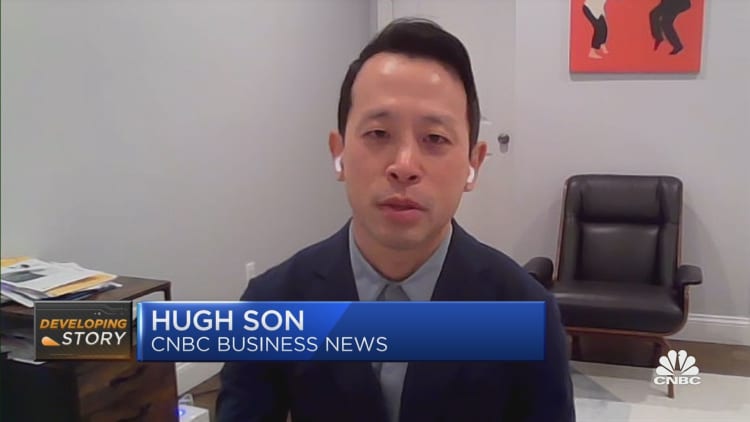
The winning bidder in the federal government’s auction of Silicon Valley Bank’s primary properties got a number of concessions to make the offer take place.
Very First People BancShares is getting $72 billion in SVB properties at a discount rate of $16.5 billion, or 23%, according to a Sunday release from the Federal Deposit Insurance Coverage Corporation.
The offer doubles Very first People’ property size, catapulting it to $219 billion in overall properties, according to the bank’s discussion It is acquiring all the loans and deposits of SVB, in addition to 17 branches, the FDIC stated.
However even after the offer closes, the FDIC stays on the hook to get rid of about $90 billion in SVB properties being kept in receivership. The sale leaves out financial investment securities, indicating the FDIC is stuck to SVB’s bonds that have actually dropped in worth, and which assisted stimulate the company’s death.
And the FDIC accepted a five-year loss-sharing offer on industrial loans Very first People is taking control of, in addition to a $70 billion line of credit for “contingent liquidity functions,” the North Carolina-based bank stated Monday.
The FDIC is likewise providing Very first People a five-year, $35 billion loan to assist fund the offer, according to the Wall Street Journal. In exchange it is getting equity rights in the bank that might be worth approximately $500 million.
All informed, the SVB failure will cost the FDIC’s Deposit Insurance coverage Fund about $20 billion, the company stated. That makes the SVB failure the costliest in history of the deposit insurance coverage fund, which started running in 1934. The expense will be borne by greater costs on American banks that take pleasure in FDIC defense.
Shares of Very First People soared 45% in trading Monday.
Underwhelming interest
The offer terms might be discussed by warm interest in SVB properties, according to Mark Williams, a previous Federal Reserve inspector who lectures on financing at Boston University.
The federal government took SVB on March 10 and later on extended the due date for its properties. Bidding had actually boiled down to First People and Valley National Bancorp, Bloomberg reported recently.
” The offer was getting stagnant,” Williams stated. “I believe the FDIC recognized that the longer this took, the more they ‘d need to discount it to attract somebody.”
The continuous sales procedure for another ailing lending institution might likewise have actually cooled interest in SVB properties, according to an individual with understanding of the procedure. Possible acquirers held back on the SVB auction since they wanted to try on Very First Republic Bank, which they yearned for more, this individual stated.
In the wake of SVB’s collapse this month, depositors worried about their uninsured holdings pulled billions of dollars in money from smaller sized banks and put them into monetary giants consisting of JPMorgan Chase That triggered a sell-off of local bank shares, and First Republic was amongst the hardest struck.
The major leagues
To balance out the outflows, JPMorgan and 10 other banks transferred $30 billion in First Republic, however its stock continued to move, triggering the bank to think about tactical options. On Monday, Very first Republic shares were rallying together with other bank stocks.
In its release, First People stated it has actually closed more FDIC-brokered bank acquisitions than any other lending institution because 2009. The bank went from having $109 billion in properties at yearend to more than $200 billion after this deal, in addition to more than 550 branches throughout 23 states.
The offer is a substantial increase to First People’ property size and deposit base, according to Williams.
” They move into the major leagues with this offer,” he stated. “When other banks see fire, they escape. This bank runs towards it.”